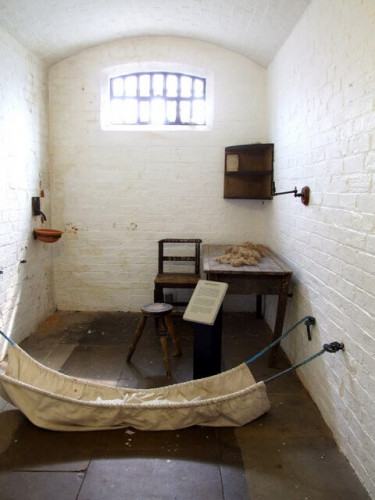Lincoln Castle dates back to 1068 when William the Conqueror built the historic building on a site that had been occupied since Roman times.

The historic Castle has been part of Lincoln’s skyline for an impressive amount of time. However, there is another attraction within the Castle’s grounds which holds an intriguing past the Georgian and Victorian prison.
Built-in 1788 it was originally a debtor’s prison, this meant that if someone had a debt they could not pay they were sent to prison to work off their debt through labour. Another way for a prisoner to be released was to secure outside funds. Allowing them to pay the remainder of the outstanding money owed in return for freedom.
With 15 bays the three storey stone building was extended in 1847. Unusually the Governor’s house is connected to the prison through a single storey prison chapel.
The prison incorporated a ‘separate system’ to keep the incarcerating inmates isolated giving them time to reflect and repent. This regime discouraged prisoners from influencing one another as well as helping them to reform prior to their release.
The chapel was designed to keep prisoners from communicating by enclosing them within their seat so that they could only see the preacher but he could see all of the inmates.
However, by 1878 the isolation system was abolished and so all the inmates were moved to an alternative prison on the outskirts of Lincoln. This left the Grade II listed prison empty until the cells were occupied by Lincolnshire Archives for storage.
Today sections of the prison are now open as a fascinating museum including the 19th-century chapel which gives visitors an idea of how hard it was for the inmates to try to communicate. This eerie prison has also been used as a filming location for many television dramas such as Downton Abbey.
It’s worth taking a look at Lincoln Castle with stunning grounds and with the historical Prison, any visitor will enjoy learning about these extraordinary landmarks.
Previous Post
Facts about The Leopard Inn, Stoke-on-Trent